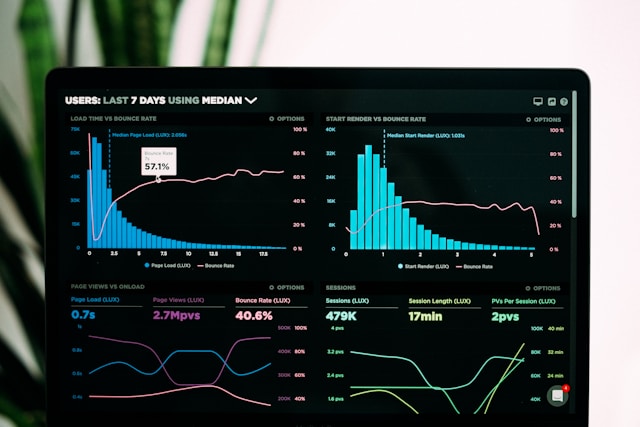How to Optimize Your Website Performance for Better Results

Improve website performance, enhance SEO, increase conversions with expert tips and tools. Optimize today!

Introduction
Hello, fellow website owners! Are you tired of waiting for your website to load as slow as molasses on a cold day? Are you losing potential customers because they don't have the patience to stick around and see what you have to offer? Well, fear not! In this comprehensive guide, we will walk you through how to improve your website performance optimization and make your site faster than a cheetah on caffeine.
What is Website Performance Optimization?
Website performance optimization is the process of making your website faster and more efficient. It involves improving various aspects of your site, such as page load times, server response times, and overall user experience. By optimizing your website performance, you can increase your site's speed, reduce bounce rates, improve search engine rankings, and ultimately, boost your online business.
Why Does Website Performance Matter?
Let's face it - no one likes waiting around for a slow website to load. In today's fast-paced digital world, users expect websites to load quickly and smoothly. If your site takes too long to load, you risk losing potential customers and damaging your online reputation. In fact, studies show that just a one-second delay in page load times can result in a 7% reduction in conversions.
Improving your website performance optimization is not just about making your site faster - it's also about creating a better user experience, boosting SEO rankings, and increasing conversion rates. So, if you want to stay ahead of the competition and keep your visitors happy, it's essential to optimize your website performance.
How to Improve Website Performance Optimization
1. Conduct a Website Performance Audit
The first step in improving your website performance optimization is to conduct a comprehensive website performance audit. This involves analyzing various aspects of your site, such as page load times, server response times, image sizes, and code quality. By identifying areas that need improvement, you can create a plan to optimize your site for better performance.
To conduct a website performance audit, you can use tools like Cursion.dev. This powerful tool allows you to analyze your site's performance, identify any issues that are slowing it down, and get actionable recommendations for improvement.
2. Optimize Images and Media Files
Large images and media files can significantly impact your site's load times. To improve your website performance optimization, you should optimize your images and media files for the web. This involves reducing file sizes, using the correct file formats, and implementing lazy loading techniques.
Tools like Cursion.dev can help you analyze your site's images and media files and provide recommendations for optimization. By optimizing your images and media files, you can reduce load times and create a more seamless browsing experience for your visitors.
3. Minify CSS and JavaScript Files
CSS and JavaScript files play a crucial role in how your website looks and functions. However, if these files are not optimized, they can slow down your site's performance. To improve your website performance optimization, you should minify your CSS and JavaScript files by removing unnecessary code, whitespace, and comments.
Tools like Cursion.dev can help you minify your CSS and JavaScript files and identify any issues that may be affecting your site's performance. By minifying your files, you can reduce load times and create a more streamlined browsing experience for your visitors.
4. Enable Browser Caching
Browser caching allows your website to store copies of your web pages, images, and other assets on a user's device. This means that when a user revisits your site, their browser can load the cached files instead of downloading them again from your server. By enabling browser caching, you can improve your website performance optimization and reduce load times for returning visitors.
To enable browser caching on your site, you can use tools like Cursion.dev to analyze your site's caching settings and make recommendations for improvement. By enabling browser caching, you can speed up your site and create a more efficient browsing experience for your visitors.
Conclusion
Improving your website performance optimization is essential for creating a fast, efficient, and user-friendly site. By conducting a comprehensive website performance audit, optimizing images and media files, minifying CSS and JavaScript files, and enabling browser caching, you can boost your site's speed, reduce bounce rates, improve SEO rankings, and ultimately, increase conversions.
So, don't let a slow website hold you back! Use the tips and tools mentioned in this guide to optimize your website performance and watch your online business soar to new heights. Happy optimizing!
Back to the blog


